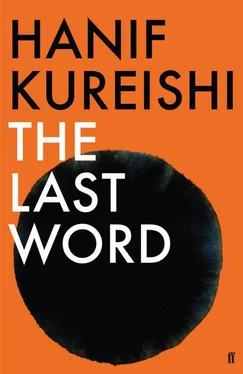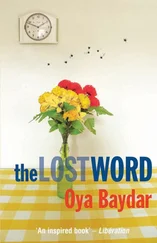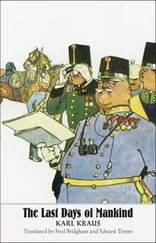They sat close together. When, quite soon, the words ran out, she licked her fingers and extinguished the candles on the table, rubbing hot wax into his hands, and onto his arms. She was plain and lovely, and not too young at all, a dramatically dark-haired busty girl in her mid-twenties or perhaps older, with black eyes, her thick legs packed into a tight, if not straining miniskirt. She introduced herself as Julia. He followed her out, and indicated his car.
They drove for half an hour, until she told him to stop in a wide street of old council houses. It was otherwise quiet in the misty rain, but dogs barked.
‘Follow me,’ she said.
But Harry wondered if he might be getting too old for the dispiriting adventure that seemed to inevitably accompany the need for human contact. Did he want to creep half drunk into a damp-walled council house at midnight in the countryside, particularly since, as the girl hauled him along the dim downstairs corridor, he glimpsed, through an open door, a scene of Hogarthian dissipation.
A late middle-aged woman with her shirt open and arms in the air and three older rough men in clothes they must have slept in for weeks were dancing. They punched their arms in the air, and shouted with drunken violence.
Julia would not let him linger. She jerked him away. Soon he was two floors up in an attic room, perhaps deluded, but certainly crammed into a single bed clinging to a thin pillow and what appeared, now, to be a fat-faced proletarian girl in her early twenties. Still, once she’d finished her cigarette, and — if he hurried — before she lit another one, he’d have her again, this time on her knees on the floor, clearing a space amongst the cups and clothes, while regarding the underwear hanging from the mirror.
Not that anything important could be achieved without inconvenience, if not suffering; and he was happy to see she was more than he’d imagined. As was often the case, he feared he might become afraid and lost in his own mind, and might begin to dwell, once more, on the fact that he and his brothers could have made their mother crazy. His father had said, not long ago, ‘There’s no ambivalence: children make their parents die. The three of you were much too much for her.’ Thinking of this, Harry required a night’s comfort and companionship. A girl is an umbilical cord, a lifeline to reality. His mother wouldn’t have wanted him to be alone.
Despite the thud of music and the occasional shock of abrupt yells from elsewhere in the house, he relaxed. As she stroked him and he kissed her hair, he could consider how things were going with the book. There had at last been progress; Harry believed he’d been asking the right questions. He’d pressed on.
That afternoon, passing the library on his way back from the barn, he’d spotted his foe through the window. The old man was halfway up a ladder searching for a book, and appeared particularly vulnerable. Harry, with a burst of spontaneous confidence, and, by now, a certain amount of desperation, had hurried into the house. ‘There you are, sir,’ he said, and peppered Mamoon with queries until even he became curious about himself.
The writer had, at last, come gingerly down the ladder, made himself comfortable in a chair and said almost mournfully, ‘I must give you more, dear man. You seem upset, and even angry, now.’
Mamoon talked about his father with respect and affection; his mother he hardly mentioned, but when pushed was kind. As for his siblings, again Mamoon talked of how much he liked them, having supported one through college in America. The sister he hadn’t spoken to for thirty years he said nothing about. ‘It’s not an interesting dispute.’ About Peggy he didn’t add much, claiming he’d repressed the details but that it was ‘all in the diaries’.
‘What’s your view of it now?’ Harry asked. ‘Of her. Your lover.’
‘You know, Harry, I loved her for a long time,’ Mamoon said. ‘But, once intelligent and attractive, the poor woman became increasingly distressed. She made herself so very ill with the drinking. She was even unwashed at times. Born for disappointment, she only wanted what I couldn’t give. The drink made her aggressive — mostly with herself.’
Harry said, ‘Would a more ruthless man have removed her?’
‘How could even a more ruthless man have removed her from her own house? I could have moved somewhere else. But there is a lot I love here — the quiet to write. The long story, the novel, is an old-fashioned and, people say, defunct form. Perhaps it resembles oil painting, in that its creation is labour-intensive and enjoins an iron discipline, patience and forbearance. It is all I can do. As for Peggy, you can’t just let people down, dammit. That’s the hell of compassion. But I did think, next time I must marry a real woman.’
‘As opposed to?’
‘A case history.’
‘You are compassionate, sir. That is well known,’ said Harry. ‘But did you go with other women?’
‘Much less than you might like to imagine.’
‘Didn’t you say that no one has been truly married until they’ve committed adultery?’
‘I hope so.’ Mamoon went on, ‘She and I always worked together on my manuscripts. That was our intimacy and the purpose of our conversations.’
‘It was your love for one another?’
‘Many artists have had a muse. The idea confuses idiotic people as to art’s origins. They want to believe it springs from a single pure source. It has been said that my work hasn’t been up to much since Peggy died.’
‘Do you agree with that?’
Mamoon shrugged and began to head for the door. ‘I work on, when I can. What the hell else could I do all day — talk to you? An artist, you must remember, is at his best in his art.’
This was duller than the much gossiped idea of a diabolic intransigent Indian driving devoted women mad. Rob’s late-night calls — he hollered into the phone, saying everything at least twice and with exclamation marks: ‘What have you got on him? What have you got? You got it yet? Make sure you tell me!’ — were making Harry so anguished he was beginning to wonder whether he could write a first book at all about a man about whom there would be many books, eventually. And if he didn’t have the book, he explained to Julia now, he wouldn’t have a career. His brothers were doing nicely, but could be very damning, while he, Harry, would be nothing.
Harry awoke when the light came up and peered about the dark blue-walled room he had landed in.
Stroking and smelling the lovely, plain woman beside him, he then recalled a lashing rant he’d received from Liana the previous afternoon, just after he’d spoken to Mamoon. She had dashed from the kitchen and into a field where he believed he was safe, reclining for a breather with a notebook in the shade of an old apple tree.
‘Why did you insult Mamoon so?’
‘Oh God, I’m sorry.’ He sat up. ‘What was it?’
‘Wasn’t it something about your father being a real man — and an example to you — because he had had three sons and brought them up alone?’
‘Dad educated us. He called it his only duty. It’s commendable. I want to do the same, Liana.’
Liana stared at him. ‘How almost impossible it must be for you to imagine what it was like for a shy, precocious Indian boy to come here and not only make a life, but a triumphant one, among such strangers, enemies even — certainly amongst people who didn’t encourage him. He showed people his stories and they literally said to him, “Why would you think anyone could be interested in these bloody Indians!”’
‘How could I not understand that?’
‘Do I need to remind you repeatedly that you have flown through life on a magic carpet of privilege? The world has always been the private garden of tall, blond, good-looking men who can stroll anywhere and ask for anything.’ She went on, ‘And never forget that whatever Mamoon and I are like, and however snobbish you think we are, if we’d failed, we’d have been left with nothing. How many so-called coloured writers were there before my husband? People didn’t even believe the blacks could spell Tchaikovsky!’
Читать дальше












